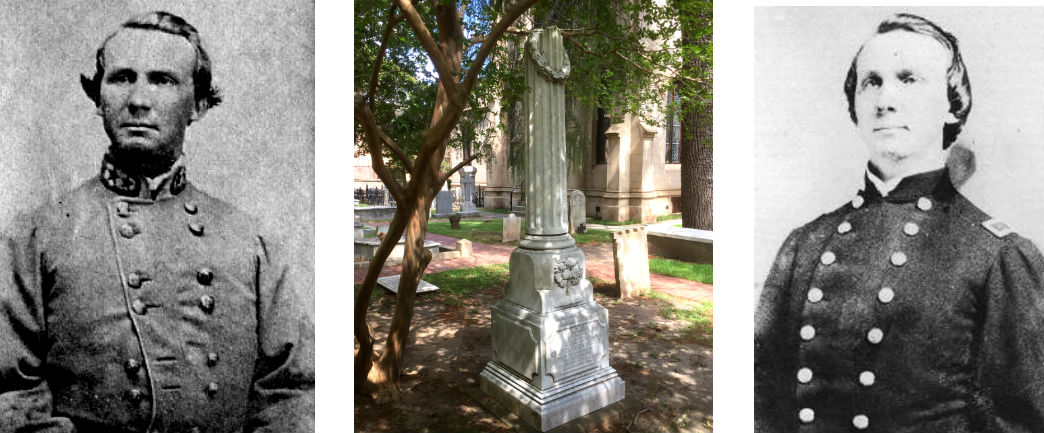The tale of the man named States Rights Gist is excerpted from my book “Forgotten Tales of Tennessee.”
On November 30, 1864, several Confederate generals met for breakfast at a Spring Hill, Tennessee, plantation called Rippavilla. According to legend, some of the generals etched their names in window panes at the home with a diamond ring. Only one etched pane remains, and it bears the name “Frank,” which could belong to General B.F. “Frank” Cheatham or General Frank Armstrong.
It is unknown if another general in attendance etched his name, but S.R. Gist (rhymes with heist and pronounced with a hard “g”) of South Carolina already was famous for his unusual name.
Leading the breakfast meeting was General John Bell Hood, who was angry that Union forces had slipped past Confederate forces the night before. Later that day, Hood ordered what many considered a suicidal assault at Franklin. Five generals who had attended the breakfast were: killed Patrick Cleburne, Hiram B. Granbury, Otho F. Strahl, and John Adams and one of the most famously named generals in the war: States Rights Gist.
Gist was born in 1831 in Union, South Carolina, to Nathaniel Gist and Elizabeth Lewis McDaniel Gist. In the months preceding his birth, the country and South Carolina were embroiled in a heated debate about states rights versus nationalism. His father’s political views became known when he named his ninth child — his seventh son — “States Rights.” His family called him “States.”
States Gist was a distant relative of Continental Army general Mordecai Gist and cousin to William Henry Gist, future governor of South Carolina. In 1863, Gist would marry Jane Margaret Adams, daughter of former South Carolina governor James Hopkins Adams. He also graduated from South Carolina College and attended Harvard Law School.
In April 1862, Gist was made a brigadier general in the Confederate Army. He was later assigned to the Army of Tennessee and commanded troops at the battles of Chickamauga, Chattanooga and Atlanta. He was wounded in his hand at Atlanta. The day after the breakfast meeting at Rippavilla, Gist was shot in the chest while leading his brigade in a charge at the Battle of Franklin. He died of his wounds at a nearby field hospital.
He was buried temporarily in a family cemetery in Franklin but was moved several years later to the Trinity Episcopal Church cemetery in downtown Columbia, South Carolina.
His name is inscribed on a plaque at St. John’s Episcopal Church in Maury County, Tennessee, where Cleburne and three other generals were temporarily interred buried following the battle. All were later returned to their home states for burial.



